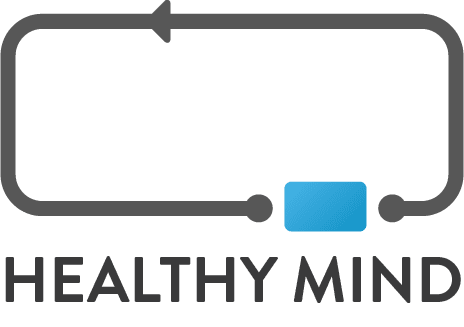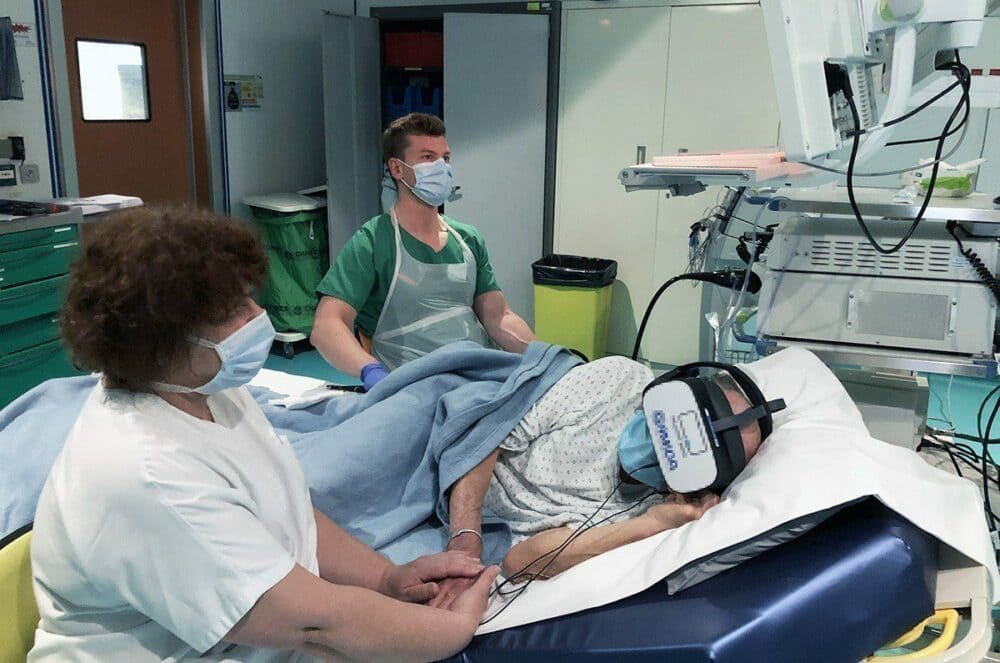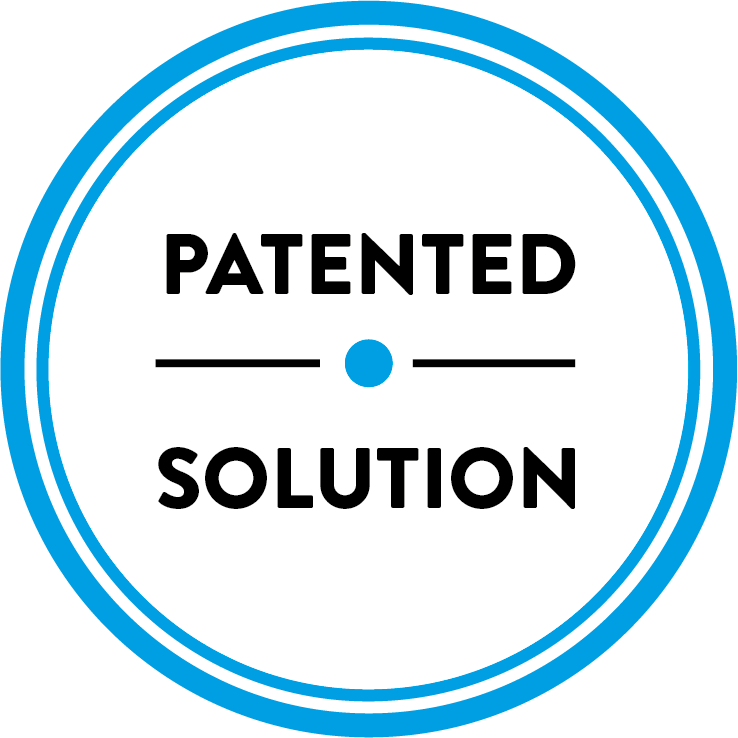How does virtual reality help you relax before/during a colonoscopy?
If there is one examination that does not arouse the enthusiasm of patients, it’s without a doubt the one of the colon. Although it is essential for detecting the risk of diseases such as colon polyps, colorectal cancer, Crohn’s disease or haemorrhagic rectocolitis, it’s no less uncomfortable. Moreover, the use of general anaesthesia during the procedure is not unrelated to the patients’ feelings of anxiety. Indeed, the use of sedation implies a longer recovery time and possible side effects. What if you could perform the colon examination without the need for general anaesthesia? This is possible with the immersion of 3D glasses. In this article we explain why colonoscopy and virtual reality go hand in hand.
How is the colonoscopy examination carried out in the gastroenterology department?
Colonoscopy is an examination of the colon using an instrument called a colonoscope. This tool consists of a flexible tube to which a lamp and a miniature camera connected to a monitor are attached. Thanks to this equipment, the practitioner has a precise and direct view of the operation. During the examination, the colonoscope is introduced through the anus and then progressively led to the colon. In order to obtain a better view of all the walls, a gas is blown into the intestine.
The colonoscopy examination takes about 30 minutes and is performed on an outpatient basis, which means that the patient can return home a few hours after waking up, provided that he or she is accompanied.
There are three methods of conducting a colonoscopy:
- under general anaesthesia or strong sedation: in this case, the doctor injects an anaesthetic intravenously to put the patient into a state of sleep;
- under light sedation: the practitioner offers a sedative so that the patient relaxes during the examination, for which he remains conscious;
- without anaesthesia or sedation: colonoscopy is performed without drug intervention at the patient’s request or following medical contraindications. However, the procedure remains uncomfortable for the patient, so the use of a relaxation therapy method is strongly encouraged.
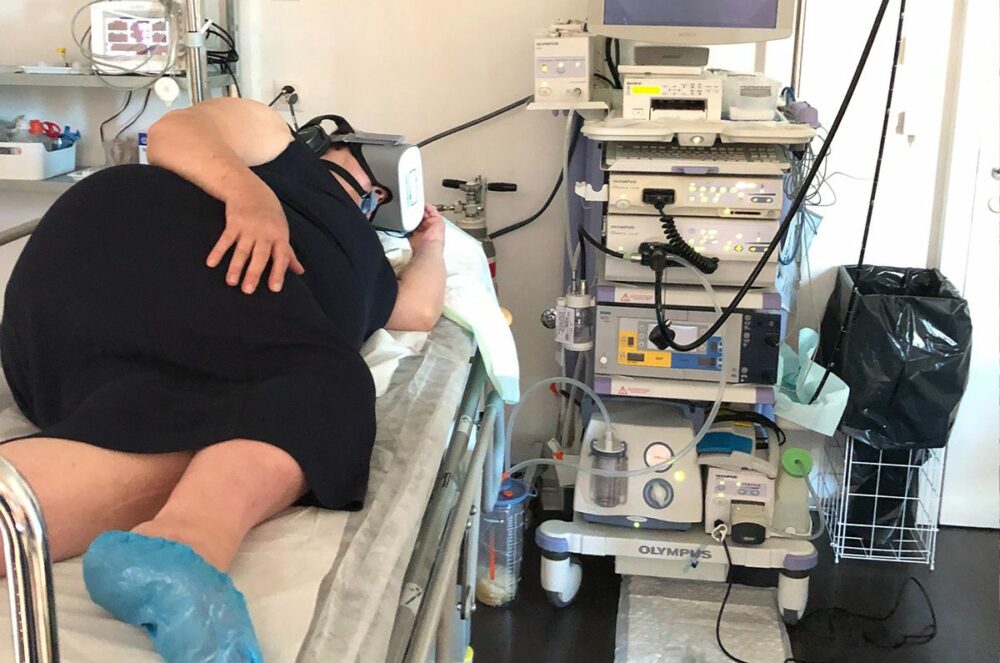
How does virtual reality work and what are its benefits?
Therapeutic virtual reality combines several principles to promote peacefulness. The immersion offered by this technology plunges the user into an environment specially designed to calm their anxieties. The realism of the settings and the interactivity of the process lead the user to dissociate from reality and focus on this optimised landscape. In addition to the use of visuals, the device is accompanied by a sound atmosphere that draws on the benefits of music therapy. A hypnotic speech follows the evolution of the chosen theme and adapts to the rhythm of this sensory journey. Finally, integrated breathing exercises offer better stress and emotional management.
All these components guarantee a moment out of time, far from the pain and the sometimes anxiety-inducing atmosphere of the hospital. To further enhance the experience, the immersions we design at Healthy Mind are cyber kinetosis free, meaning they do not cause a sensation similar to ‘motion sickness’.
The advantage of virtual reality headsets in the medical field is that they adapt perfectly to the patients’ positions. The duration of the simulations remains adjustable throughout the process, from 5 to 80 minutes. The caregivers keep control of the application with a tablet and can even communicate with their patient through a message or microphone. Verbal support remains available and can be personalised during all phases of the immersion. Easy to use, robust and secure, virtual reality is perfectly integrated into the treatment process.
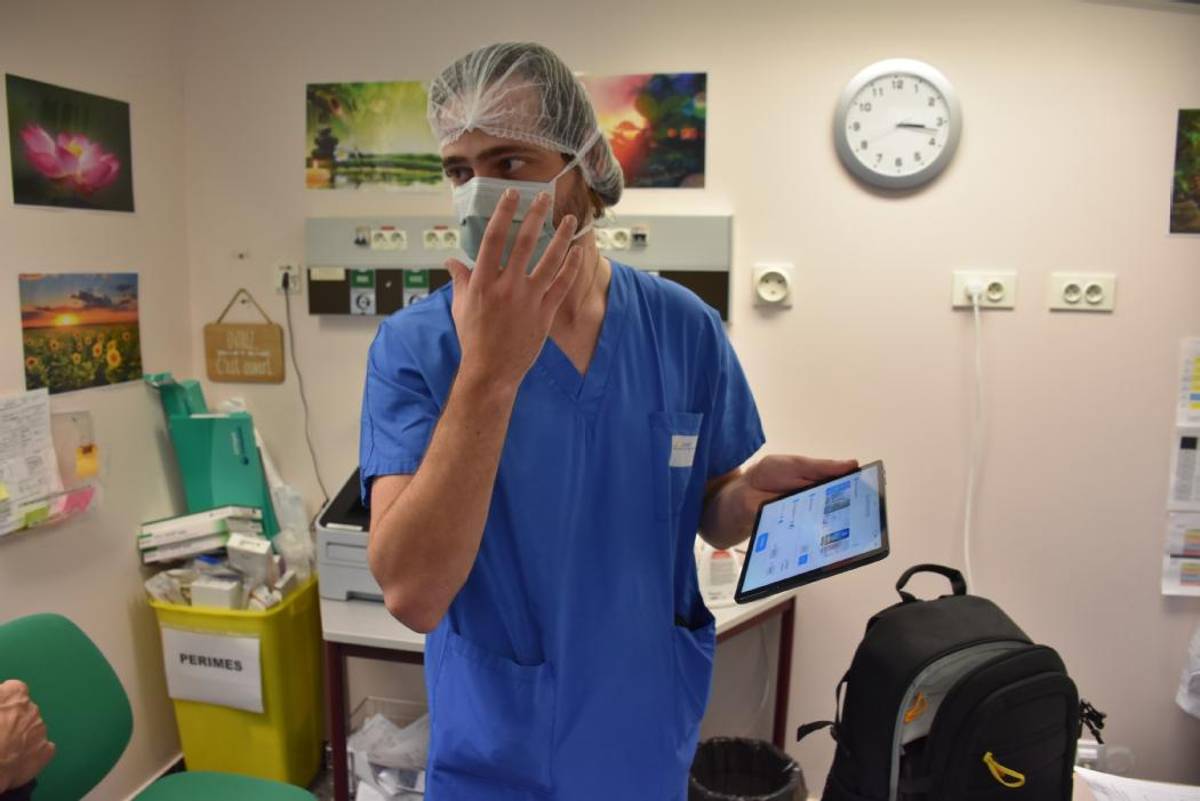
Colonoscopy and virtual reality: why does it work?
The more our mind focuses on a sensation, the stronger it becomes. It is enough to think of a pain to make it grow to the limit of what we can bear. When medical interventions are also invasive, it is very difficult to turn away from them. Simply asking the patient to relax does not create a strong enough reaction to be effective. Virtual reality, on the other hand, manages to distance the user from the experience. The sounds and sights of the hospital environment no longer have a distressing hold, they have been replaced by a completely different landscape.
When Hunter Hoffman used virtual reality for therapeutic purposes for the first time on patients with severe burns, he noticed a change in brain activity. Indeed, the regions involved in emotional management and pain control change with the use of VR, as revealed by the MRIs (magnetic resonance imaging) that he carried out. The results are clear: patients experience a 25-50% reduction in the intensity and unpleasantness of pain.
The anxiolytic and analgesic effect of hypnorelaxation was then the subject of numerous studies that have continued to demonstrate its benefits. Colonoscopy suffers from negative anticipation on the part of patients and touches an intimate area which makes the procedure uncomfortable. Virtual reality makes it easy to overcome this blockage.
Opting for hypnorelaxation instead of general anaesthesia for colonoscopy
The gastroenterology department of the Nancy CHRU has put its trust in the Healthy Mind device and now offers colonoscopies under virtual reality. While the Covid-19 epidemic monopolised the operating rooms, 95 examinations under hypnorelaxation have been carried out since the end of 2020. Dr Julien Sitte indicates that 80% of patients are satisfied with this alternative approach. This result is all the more revealing as the colon examination procedure remains one of the most stressful and uncomfortable.
We would like to share with you the experience of Josette, 84 years old, who gave up general anaesthesia in favour of the virtual glasses:
“I’ve had colonoscopies before, but I was asleep. This is the first time I’ve had a colonoscopy with this method and I feel very well, it’s great!”
Instead of concentrating on the medical procedures, Josette, like the other patients at the Nancy CHRU, turned their attention to a more relaxing environment. The use of virtual reality instead of general anaesthesia also reduces the time spent in hospital and avoids the side effects of sedation. Instead of spending half a day in hospital, hypnorelaxation allows patients to leave about an hour after the procedure.
On this subject, Dr Julien Sitte tells Isabelle Baudriller of France Bleu Sud Lorraine:
“The side effects of a general anaesthetic are not always harmless and can last several days. It also presents significant risks for the elderly, for example. This is why eligible patients welcome hypnorelaxation when we offer it to them in consultation.”
Would you like to offer virtual reality to your patients for their colon examination? We would be delighted to show you more about the device, so please contact us to arrange a demonstration.
